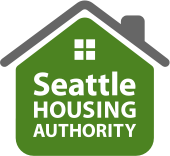SEATTLE — September 27, 2010 — The Communities Connect Network Project has received a stimulus grant of $4,169,734 from the Department of Commerce National Telecommunications & Information Administration (NTIA) to improve Washington State public computing centers (PCCs). Several computer labs located within Seattle Housing Authority communities will benefit from the grant.
Those communities include Yesler Terrace, High Point, NewHolly, Rainier Vista, Center Park, Westwood Heights, Denny Terrace and Jefferson Terrace.
The grant, which was awarded September 16, will help expand the capacity of PCCs to improve broadband adoption rates, workforce preparation, digital literacy, access to education, justice resources and training.
The Communities Connect Network Project links rural and urban resources together to serve unemployed, low-income, disabled, immigrants, and youth through over 39 libraries, non-profit organizations, public housing, community centers, and justice centers in Washington State.
The project will foster equitable access, training and increased broadband adoption by:
-
Adding and upgrading computers and software, adding assistive technology, extending operating hours, and establishing four new public computer centers, including new public access computers at courthouses
-
Capacity-building training to help PCCs meet the needs of vulnerable populations including in the areas of digital skill building, education, online legal services, and workforce preparation
-
Encouraging information distribution and sharing on the topics of education, workforce preparation, online safety, legal, financial literacy, and computer lab management through an online resource portal
-
Establishing a Public Computing Center Directory and referral pipeline to help residents locate PCCs and help providers refer clients to services and support
As a result of this project, thousands of low-income families in Washington State will be able to access broadband services, education, job, health, and the civic tools that information technology provides. Public agencies, nonprofit organizations, and libraries across the state will be better able to utilize high-speed Internet services through resources and training to meet the community needs.
